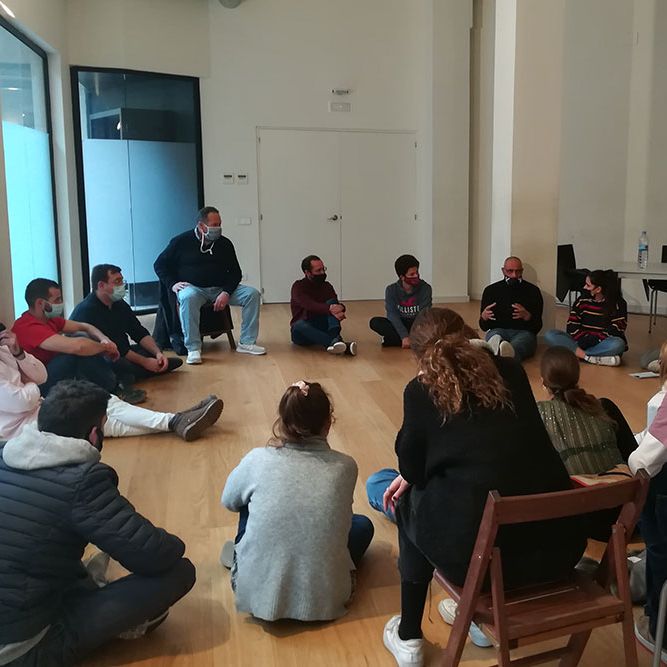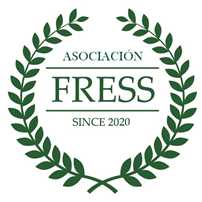
Erasmus+ Training Courses for Teachers and Educators
Innovative European training opportunities designed to enhance skills, creativity, and professional growth.
Transform your teaching practice with European innovation

Empowering educators through European learning
Our Erasmus+ courses are designed to support teachers, trainers, and education professionals in developing key competences, enhancing intercultural understanding, and applying innovative methodologies in their work.
All our courses can be co-financed through Erasmus+ KA1 and included in your institution’s internationalization or mobility plan.
Courses will mainly take place in Barcelona, with the possibility of sessions in Oviedo (Asturias), Madrid, or Seville depending on participant numbers.
First editions will run between January and March, and require a minimum of 10 participants (with the option to form groups within organizations).
Your institution can include them in its Erasmus+ mobility or internationalization project. We provide full support with documentation, registration, and logistics.
Courses Dates
January 2026
· EU Competencies and Participation — 19.01.2026–23.01.2026 — Barcelona, Spain — Pre-register
February 2026
· Cultural Pedagogical Theater (CPT) — 16.02.2026–20.02.2026 — Barcelona, Spain — Pre-register
March 2026
· Effective Equality for Women and Men in VET (EQUAL) — 16.03.2026–20.03.2026 — Barcelona, Spain — Pre-register
April 2026
· Cultural Pedagogical Theater (CPT) — 20.04.2026–24.04.2026 — Barcelona, Spain — Pre-register
Our Courses
1.
EU Competencies and Participation
This training course focuses on developing European citizenship and employability skills through the use of key EU tools:
OLS (Online Language Support), ESCO (European Skills, Competences, Qualifications and Occupations), and Europass.
Participants learn how to help students and professionals identify, document, and improve their competencies, while exploring mobility opportunities for study, work, or volunteering in Europe.
The course also integrates Media and Information Literacy (MIL), helping educators strengthen critical thinking and civic participation among learners.
Each participant designs a personal or institutional mobility plan, connects their professional profile to the ESCO framework, and learns to use Europass to enhance transparency and employability.
A European Digital Credential for Learning (EDC) will be provide to the participants, issued by ANCCP (VET national association of which we are associate members) to a learner to accredite officially their learning.
Participants will receive it either directly deposited to your Europass wallet (available in your Europass Library) or via email, allowing you to upload the credential to your Europass wallet (or other compliant wallets).
If an institution issues you an EDC, you will receive it either directly deposited to your Europass wallet (available in your Europass Library) or via email, allowing you to upload the credential to your Europass wallet (or other compliant wallets).
Learning outcomes:
- Use OLS for language assessment and planning.
- Map skills and occupations with ESCO.
- Create a mobility plan for study, work, or volunteering.
- Prepare Europass documents.
- Develop a small civic project using media literacy.

Learning hours: 20
Target group:
VET and adult education teachers, guidance counselors, and staff interested in European mobility and lifelong learning.
2.
Cultural Pedagogical Theater (CPT)
The Cultural Pedagogical Theater (CPT) is a creative educational methodology that uses theater as a tool for social and pedagogical transformation.
Inspired by Paulo Freire’s Theater of the Oppressed, CPT promotes reflection, empathy, and dialogue through interactive and participatory theater practices.
This course introduces participants to three key techniques —Interactive Form Theater (IFT), Interactive Design Theater (IDT), and Interactive Script Writing (ISW)— to explore conflict resolution, inclusion, and group dynamics in educational and community settings.
Through warm-up exercises, improvisation, and group reflection, participants experience the power of theater to address complex issues, enhance communication, and foster creativity within teams and classrooms.
Learning outcomes:
- Understand the CPT method and its use in social and educational contexts.
- Apply the method through its three interactive phases.
- Adapt the CPT approach to different audiences and learning situations.

Learning hours: 20
Target group:
Higher education, VET, secondary school, and adult teachers; social educators and trainers interested in participatory methodologies.
3.
Effective Equality for Women and Men in VET
This course is based on the EU Gender Equality Strategy 2020–2025, the roadmap guiding the European Commission’s work toward equality between women and men.
Participants will analyze how European policies translate into national regulations and workplace practices, exploring key milestones and new challenges in achieving gender balance in education and employment.
The training provides tools to design, implement, and evaluate equality plans in schools, vocational centers, and organizations. It combines theoretical insights with practical exercises focused on identifying inequalities, planning corrective actions, and promoting inclusive institutional culture.
Learning outcomes:
- Understand the framework and objectives of the EU Gender Equality Strategy 2020–2025.
- Recognize national and institutional implications of gender equality regulations.
- Develop and apply an equality plan adapted to educational environments.
- Gain the competence to act as a member or coordinator of a gender equality committee.

Learning hours: 20
Target group:
Teachers and trainers from vocational, secondary, or adult education interested in equality, inclusion, and institutional development.
More information about the courses contact us.
